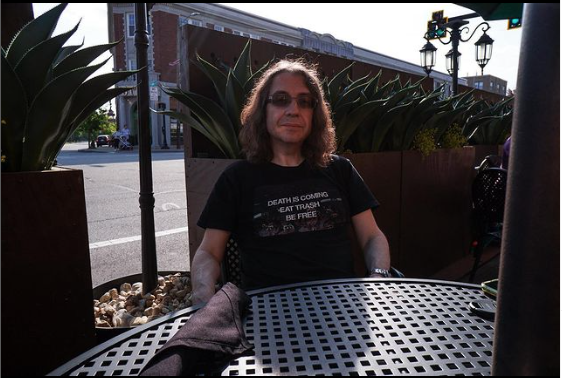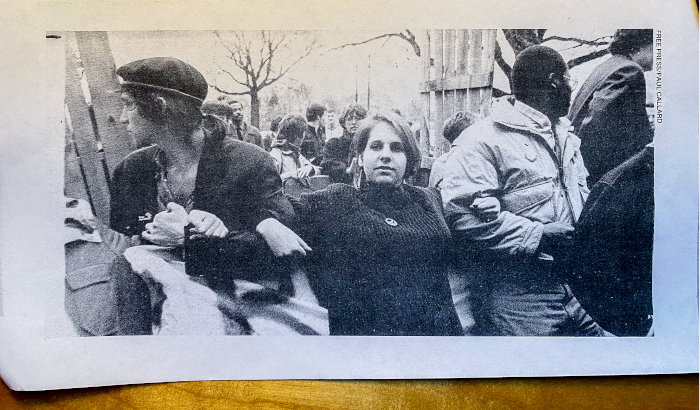And why they need to stop dumping millions on PR firms and start funding left news organizations before we all collapse
It’s safe to say that the mainstream American journalism tradition of “objectivity” in reporting is almost dead. At least objectivity the way that the New York Times and other large news organizations practiced it over the last 100 plus years—that is, as I often tell my interns, striving for craven supplicance to the rich and powerful in the service of profit. Or more prosaically, supporting the extraordinarily flawed idea that journalists are somehow neutral arbiters floating 500 feet above any fray we happen to be covering. Merely separating fact from fiction without having any opinions of our own.
Which is, of course, patent nonsense. No human being can ever produce journalism without their personal (but hopefully informed) opinion having some effect on their articles—even if the effect is simply the result of their choice to cover particular stories to begin with.
The Boston Institute for Nonprofit Journalism, on the other hand, emerged from the tradition of the American alternative press. We therefore believe that journalists are always part of the stories we cover. So we simply state our biases to our audience in our articles and give readers credit for having the intelligence to know that neutrality in journalism is neither possible nor desirable. Fairness and accuracy, however, are … and we always strive for both in our reporting.
Given that fact, it should be obvious that BINJ has an “editorial line” like all other publications when it comes to politics. For example, the New York Times is considered a center-left publication (“objectivity” or no “objectivity”), even though left-wingers like myself see overwhelming evidence that it is center-right by global political standards.
The left-right spectrum relates to an individual’s or institution’s relationship to capital and capitalists. If a publication reports the news in support of capitalists and capitalism, then it’s on the right. If it reports in support of the common people and democracy, then it’s on the left. If it tries to play to both sides, it’s in the center. And if it’s in the center but leans one way or the other then it’s center-right or center-left.
So where does BINJ come down politically? Clearly, by the schema above, we’re a publication of the left. We support the common people and democracy. We always punch up, not down. Does that mean we’ll never run the perspectives of people from other political camps? Certainly not, particularly in our opinion pages.
However, and here we arrive at the point of this outing, do the institutions of the political left support us financially? Do they help us to keep doing the very hard work of reporting the news in the public interest from a left-wing perspective?
Not really. Sure, some left-wing individuals do. But most left institutions like major unions, nonprofits, and foundations with annual budgets in the millions or tens of millions—institutions that BINJ absolutely covers, year in and year out—have not had the consciousness to put any money into helping us and other left-wing publications survive an extremely difficult era for journalism in the US.
Why? Well I believe it’s because like most other human institutions, they understand that good and ethical journalists are by nature very independent. And we follow the facts where they lead, whatever the story. Which makes left institutions nervous. They want press, sure. But they want press that extols their virtues and ignores their faults. They want, in short, propaganda.
And BINJ will never produce propaganda. To do so would be to violate our mandate to publish independent news in the service of democracy.
So we see these larger left institutions paying PR and marketing firms huge amounts of money to try to get news outlets like BINJ to give them not just coverage, but exactly the kind of positive, uncritical coverage they desire.
This is an incredibly self-defeating practice for the broad left. It means that propagandists are being made rich while left news organizations are collapsing for lack of funds. All because journalists like me who run those news organizations will never guarantee coverage to anyone, whatever their politics, and will certainly never guarantee positive, uncritical coverage—which we and any fair-minded observer would call “pay for play” … that is, propaganda.
And that’s a pity. Because, meanwhile, over the 40 years I’ve been a journalist on the political left, right-wing institutions have lavished right-wing news organizations with donations and investment on a scale that dwarfs anything the left-wing institutions have done for left-wing news organizations like BINJ.
The result? The right-wing press is huge and powerful and the right has become the dominant force in American politics. And most of the left-wing press is on the verge of collapse and the left has ceased to be a significant political force in this country.
Now, at BINJ, we know a thing or three about survival or we wouldn’t have made it past the 10 year mark.
But we can’t guarantee we’ll make it to year 11 and we’re still tiny relative to the massive amount of news that we should be covering yet can’t cover for lack of funds and the staff and reach that funds buy.
So I’m throwing down a gauntlet: I’m challenging left-wing labor unions, nonprofits, and foundations to spend much less on PR and marketing firms in the coming years and much more funding the independent left press like BINJ. And I mean the grassroots indy left press at the local and state levels. I think the few surviving larger left news outfits at the national level are doing ok and can take care of themselves.
If the leaders of such left institutions would like to talk about what it would take to strategically bankroll the left independent press, BINJ included, I can be reached at info [at] binj.news.
This editorial was produced for HorizonMass, the independent, student-driven, news outlet of the Boston Institute for Nonprofit Journalism, and is syndicated by BINJ’s MassWire news service.






